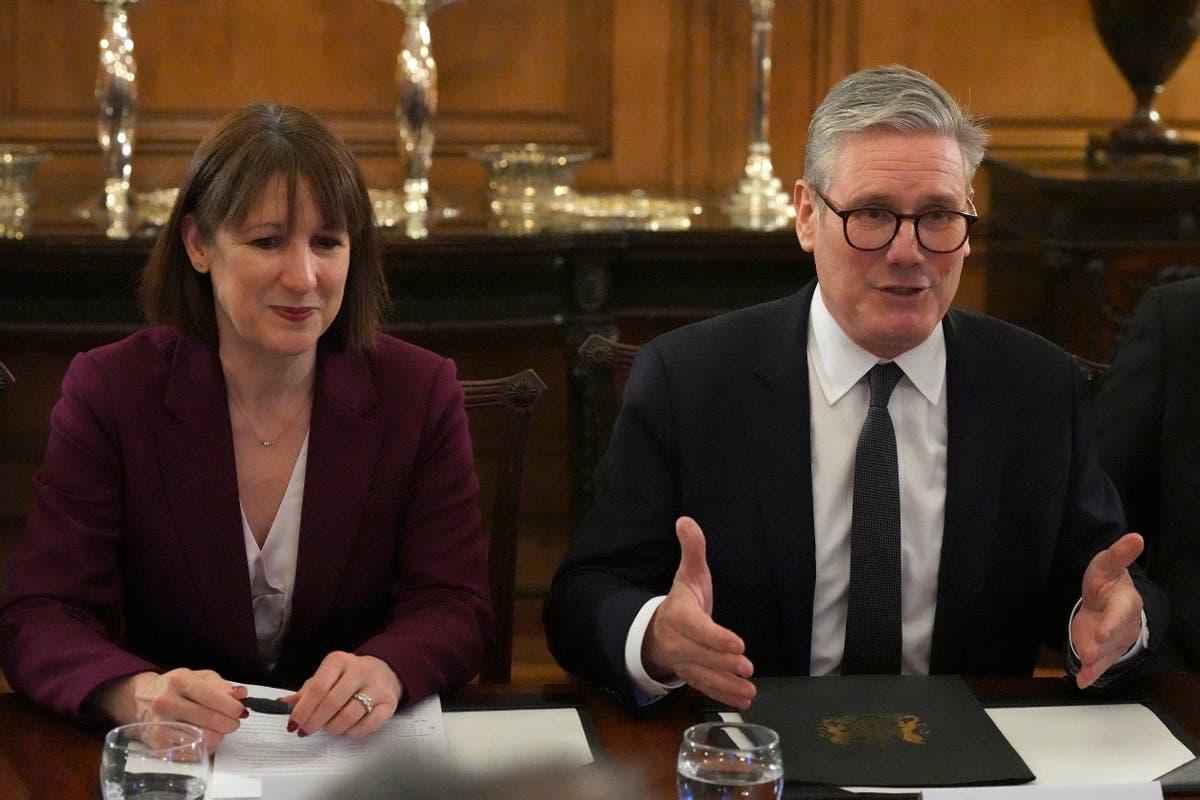No amount of political tinsel or rhetorical baubles can disguise the grim reality that the British economy is flatlining. Between July and September it failed to grow at all, according to the latest figures, which represent a marginal adjustment downwards from the initial reading of plus 0.1 per cent. For what it’s worth, the previous quarter’s growth was also downgraded.
It’s fair to say that these statistics will fail to lift depressed business and consumer confidence as 2025 approaches. Inflation remains above target, albeit way below its peak during the last energy crisis, and interest rates are therefore not going to fall as rapidly as seemed likely even a few months ago. A mild recession in the early part of 2025 cannot be ruled out.
Plainly, these disappointing trends in GDP cannot be blamed on Rachel Reeves’s Budget, which was delivered some weeks after the period in question had ended. Equally plainly, the downbeat mood struck by Labour ministers following the general election, with their talk of a crisis in the public finances, cannot have helped matters; and if the latest surveys are anything to go by, Ms Reeves’s Budget measures have further dampened the “animal instincts” of entrepreneurs and households, making them more reluctant to take risks and invest in the future.
Labour’s “decade of renewal” is getting off to a sluggish start.
There is a series of traps here that Labour ministers are almost blithely walking into. The first has already swallowed at least one limb – the stark difference between the upbeat rhetoric of “change” and “growth” deployed by Labour in opposition, and the depressing reality of what has transpired since. Sir Keir Starmer and Ms Reeves plead that it is all down to the £22bn “black hole” that they discovered in the public finances.
As time goes on it sounds increasingly like an excuse, but it also poses the question of why Labour didn’t see that the long-term problems with investment and productivity would necessarily lead to harsh choices when they eventually came to power. If it is indeed the case that whatever growth the UK economy managed in the past few years or so was based on unsustainable borrowing and fantastical public spending plans, then why didn’t Sir Keir and Ms Reeves tell the electorate the grim truth, rather than giving the impression that no substantial increases in taxation or cuts in public spending would be needed?
Now that the tough choices are being made, the Labour government is creating a second trap for itself. Assuming that its plans to restore the public finances, launch infrastructure projects and relax planning rules prove effective in raising the long-term rate of growth of the British economy, most of the benefits of this otherwise welcome step-change will not be seen for some years. It necessarily takes time to build 1.5 million new homes, modernise rail lines and transition to clean energy, and during that time, households and businesses will be paying the price before the benefits eventually reveal themselves.
The delay will be even greater if, as seems sadly likely, the much-vaunted Brexit “reset” proves to be modest and focused on defence and security rather than trade and investment. Brexit, in other words, hasn’t gone away, and will exert its baleful influence on UK growth and living standards for decades to come. The political pressure to reduce all kinds of migration will also serve to depress growth prospects – labour and skills shortages are one of the most painful constraints on the British economy even now, with relatively high numbers of workers still arriving.
Remote as the next general election is, then, it is already apparent that most of the improvements in growth that may well come through will arrive only after the electorate is invited to pass its verdict on this Labour administration, in 2028 or 2029 – in the second half of Sir Keir’s putative “decade of renewal”. That could easily prove too late for Labour’s chances of winning a second term, and even more frustratingly, it could leave a successor Conservative government to reap the rewards of the suppression of consumption today.
These facts of economic life are clear to see already, and important enough that the government should level with the British people about what they might expect in the coming years. “Change”, it should be more explicitly admitted – by way of overdue caveat – will take time and demand sacrifice.

